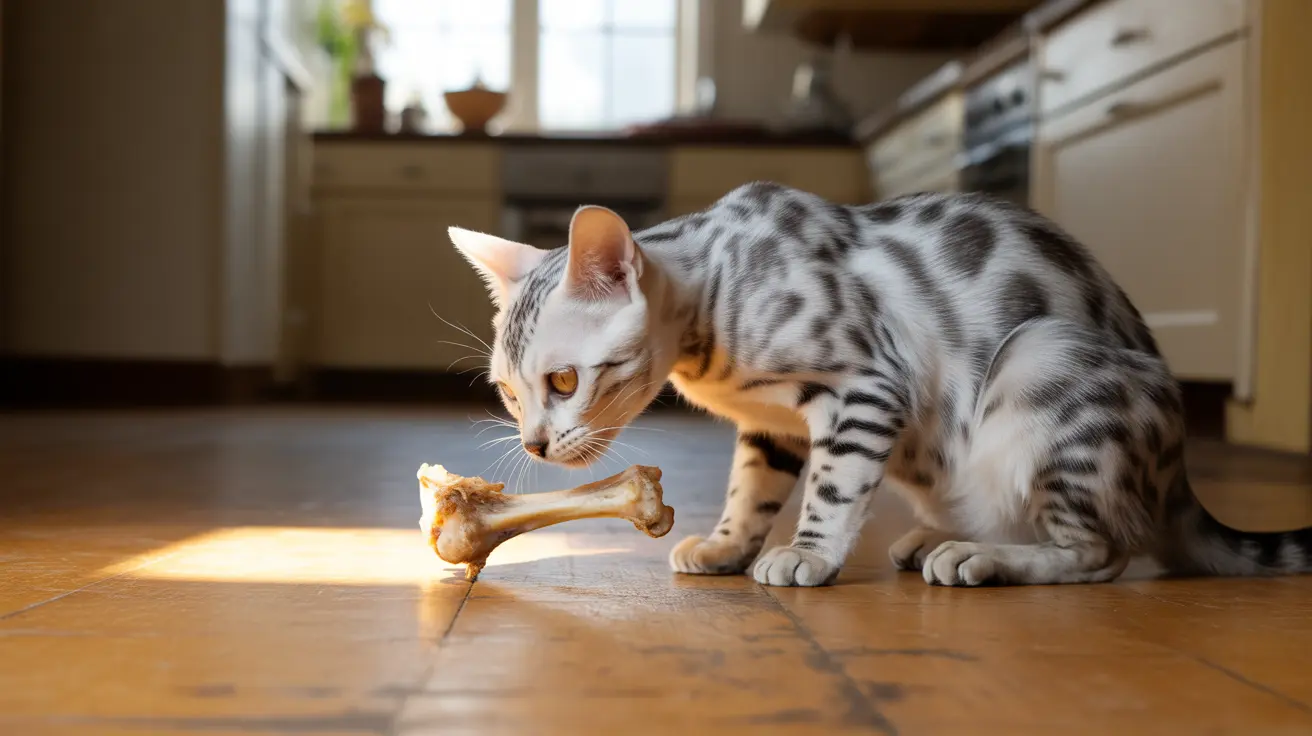Understanding the Risks of Bones for Cats
Feeding bones to cats can lead to several serious health complications. Veterinarians strongly advise against giving cats bones of any kind, as the potential dangers far outweigh any perceived benefits. Here are the primary concerns:
Choking and Obstruction Hazards
Bones, particularly cooked chicken bones, can easily splinter and become lodged in your cat's throat or esophagus. These fragments can cause immediate choking or create dangerous blockages that require emergency veterinary intervention.
Internal Injuries and Perforation
Sharp bone fragments can puncture or tear the digestive tract, from the esophagus to the intestines. This can lead to peritonitis, a life-threatening infection of the abdominal cavity that requires immediate medical attention.
The Truth About Raw vs. Cooked Bones
Cooked Bones: A Definite No
Cooked bones are especially dangerous because the cooking process makes them brittle and prone to splintering. When cats chew on these bones, they can break into sharp pieces that pose severe risks for internal injuries.
Raw Bones: Still Risky
While some raw feeding advocates suggest that raw bones are safer, they still present significant risks:
- Bacterial contamination (Salmonella, E. coli)
- Dental fractures from chewing
- Potential intestinal blockages
- Risk of choking
What to Do If Your Cat Eats Bones
If your cat has consumed bones, watch for these warning signs:
- Difficulty breathing or swallowing
- Vomiting or gagging
- Lethargy or unusual behavior
- Loss of appetite
- Constipation or diarrhea
- Blood in stool
Contact your veterinarian immediately if you notice any of these symptoms. Even without immediate signs, it's wise to consult your vet for guidance.
Safe Alternatives for Dental Health
Instead of bones, consider these veterinarian-approved alternatives:
- Commercial dental treats designed specifically for cats
- Dental-specific dry food formulas
- Veterinary-approved chew toys
- Regular dental cleanings at your vet's office
Frequently Asked Questions
Why should I avoid feeding my cat cooked bones, especially chicken bones?
Cooked bones, particularly chicken bones, become brittle and can splinter easily. These sharp fragments can cause choking, internal injuries, and life-threatening perforations in your cat's digestive system.
Can cats safely eat raw bones, and what types are best if supervised?
While raw bones are less likely to splinter than cooked bones, veterinarians generally advise against feeding any type of bone to cats due to risks of bacterial contamination, choking, and intestinal blockages.
What are the signs that my cat has a bone stuck or an intestinal blockage?
Watch for difficulty breathing, excessive drooling, vomiting, lethargy, loss of appetite, abdominal pain, and changes in bowel movements. These symptoms require immediate veterinary attention.
What should I do if my cat accidentally eats a bone?
Contact your veterinarian immediately for guidance. Monitor your cat closely for any concerning symptoms and be prepared to seek emergency care if problems develop.
Are there safer alternatives to bones for my cat's dental health and nutrition?
Yes, veterinarian-approved dental treats, specially formulated dental diets, and regular professional cleanings are much safer alternatives for maintaining your cat's dental health.
Conclusion
While cats may be naturally drawn to bones, the risks associated with feeding them bones are simply too high. Focus instead on providing your cat with safe, veterinarian-approved alternatives for dental health and nutrition. When in doubt, always consult with your veterinarian about the safest dietary choices for your feline companion.






